Rep. Karla Rose Hanson provides powerful testimony on lack of funding for behavioral health care
FOR IMMEDIATE RELEASE:
Friday, April 21
(BISMARCK, N.D.) – Democratic-NPL Representative Karla Rose Hanson (Fargo) provided powerful testimony yesterday on HB 1040, a bill to address North Dakota’s behavioral health crisis by enacting recommendations from the interim Human Services Committee.
Speaking on the House floor, Rep. Hanson said:
“Last fall, I was knocking on doors in my North Fargo neighborhood. One day, the man who answered the door apologized to me. I was surprised. And he said: ‘I’m sorry; I just can’t focus right now. Last night, my son overdosed on heroin, and it took two doses of Narcan to bring him back.
“He was distraught about his son, but he was also hopeless about what help could be available. So, we sat on his front steps and talked. We talked about the severe shortage of addiction treatment and mental health care across our state. And we talked about what the legislature can do through policy changes and by funding direct services.
“This father is unfortunately not alone. I spoke with so many families who felt our state should place a bigger priority on behavioral health services. One mom cried on my shoulder because she lost a daughter to suicide. Another raged because the only way her son could get help for his addiction was to get treatment in jail. Many other families worried about the increase in property crime and violent crime in our neighborhoods […]
“Across the state, we need to do more. Our behavioral health services are in a crisis, and it’s of our own making. Many of you, I’m sure, have had similar conversations with your neighbors. Because of these conversations, we pledged to our constituents that we will do more for behavioral health. We will address the shortage of treatment and mental health services in our communities. That’s what we’ve promised.
“My concern with this bill is that it’s another broken promise. Yes, we need to cut budgets during this session, but we should be making smart cuts. We already know that proven programs like peer-to-peer support work and are cost-effective in helping those who are struggling. And we also know it’s effective because it will cost taxpayers less in the long run. By investing in these programs now, it helps us avoid costly medical treatment down the road as well as less cost for law enforcement and criminal justice. Undoubtedly, it will help avoid the ultimate cost of lost lives.
“So, I’m disappointed in the drastically reduced funding for this behavioral health bill, and I know that North Dakotans will be disappointed by yet another broken promise.”
When HB 1040 was first introduced, it contained a total of $28 million for North Dakota’s unmet behavioral health needs. By the time the bill was passed, however, it included only $350,000 in funding, just one percent of the original amount.
Originally included in HB 1040 was $7 million in state dollars (which would generate another $7 million in matching federal funds) for children and youth with severe mental health problems. The interim Human Services Committee identified 3,800 children and youth for whom this funding was intended. Unfortunately, this funding was cut out of the final version of the bill.
Rep. Kathy Hogan added:
“House Bill 1040 was the backbone of the interim Human Services Committee’s recommendation to address the need for expanded behavioral health services in North Dakota. It was a comprehensive bill to develop a full range of services based on the Schulte recommendations in 2014. It was comprehensive to address the needs of adults and children with mental health and substance abuse issues.
“The original funding was $28 million, of which $14 million was from the general fund. This bill is still important because it provides small steps that will help many, but it really doesn’t the crisis in behavioral health.
“Suicide rates continue to grow. There are several people in this chamber who’ve been dealing with issues related to suicide that I’m aware of. The opioid crisis consumes many individuals and families. Children and adolescents with moderate or severe mental health needs are simply not receiving care. Fewer than 10 percent of adults with serious chronic mental health issues receive services.
“Knowing we have a budget crisis, it’s easy to say there is nothing we can do. But without providing these services, North Dakota and our citizens are still paying. Our emergency rooms, our jails and prisons, homeless shelters, foster homes, are filled with people who have nowhere to go. People are dying because of the behavioral health crisis.
“I urge you to vote green on the many steps this bill addresses. But when you go home at the end of the session, listen to the stories, attend the funerals of people who have committed suicide or passed away from opioid overdoses. Visit with your health care and behavioral health providers. This is an issue that isn’t going away, and we will be back in two years to address it.”
# # #

